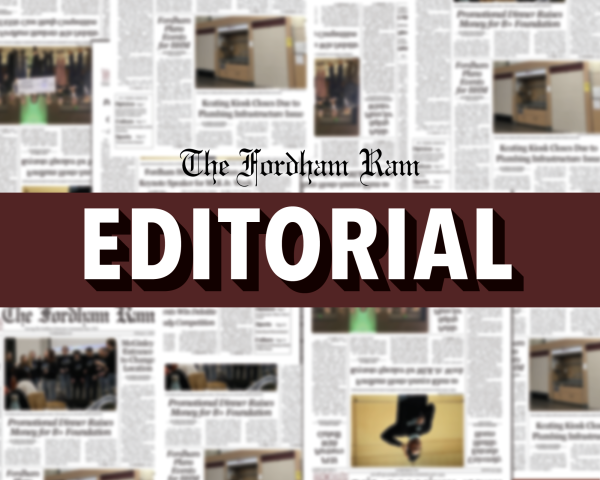Preparing for a Technocentric Future
Among the changes brought about by the COVID-19 pandemic is our increased dependence on technology. Whether it be for work, entertainment or simple human interaction, current global circumstances have made the use of technology inescapable. For these reasons, many experts have concluded that we are entering what they describe as a “tele-everything world.”
This statement is hard to dispute as New York approaches a year since the start of quarantine, and many still cannot avoid staring at a screen for multiple hours a day. Events and activities that used to be in-person now only require the use of a phone or computer. Classrooms were converted into Zoom meetings. Online shopping triumphed over retail stores. Takeout and delivery replaced indoor dining. As long as people have access to a smart device and reliable internet, they rarely have to leave their rooms.
This digital transition started as a safety precaution to slow the spread of the coronavirus, but what kind of impact will it have on the future? Will institutions choose to revert back to their old practices, or will they continue to utilize virtual alternatives?
Pew Research Center recently conducted a survey in which they asked experts from numerous fields their predictions for what life will look like by 2025. Out of about 900 recipients, almost 86% agreed that the “evolution of digital life” will have both positive and negative effects.
This mixed assessment of the future is understandable as there are certainly downsides to an over-reliance on technology. One of the bigger disadvantages is a resulting increase in classroom disparity. For example, research has shown that students from low-income households have a harder time adjusting to online instruction since they do not have access to the resources required to complete their work successfully. Regardless of one’s economic status, online gatherings, whether professional, academic or social in nature, have negative effects on mental and physical health. Yes, I’m talking about the dreaded Zoom fatigue. A great deal of people’s days are spent looking at screens, and this can be very draining. Although online instruction has worked as a necessary alternative, many miss the days of walking to various classrooms and having face-to-face conversations with classmates and professors.
Nevertheless, it is important not to overlook the benefits of an increasingly technological world, one of which being the added convenience to many people’s lives. People can now attend important business meetings without leaving the comfort of their sweatpants. Regarding entertainment, many production companies are simultaneously releasing their films on-demand or on streaming platforms, giving individuals another opportunity to remain at home. Regardless of its drawbacks, it is amazing how much our advanced technology has allowed us to accomplish in the past year. Imagine how different life during this pandemic would have been had it occurred just one decade earlier, a time without platforms like Zoom, Google Meet, Snapchat or TikTok. It is impossible to definitively say that times would have been a lot tougher had this been the case, but it is important to appreciate what today’s technology has given us.
Even in the pre-pandemic era, it was clear that the world was heading towards a technologically dominant future, but current events have certainly helped speed up the process. With all major changes introduced to a society, there are evident pros and cons. In this case, the pros of digital advancement outweigh the cons. While it’s safe to say that many forward to the return of in-person events like classroom instruction and indoor dining, our adopted virtual practices should not be abandoned altogether. Instead, they should continue to be offered as alternative modes of learning and communication.
When everything begins to settle down, the COVID-19 pandemic will become a period of time that everyone will want to forget. However, it is important to remember what we have learned from our experiences and use it to help build a better future.

Pia Fischetti is a senior from New York majoring in new media and digital design. She began her journey with the Ram during her freshman year as a photographer....














